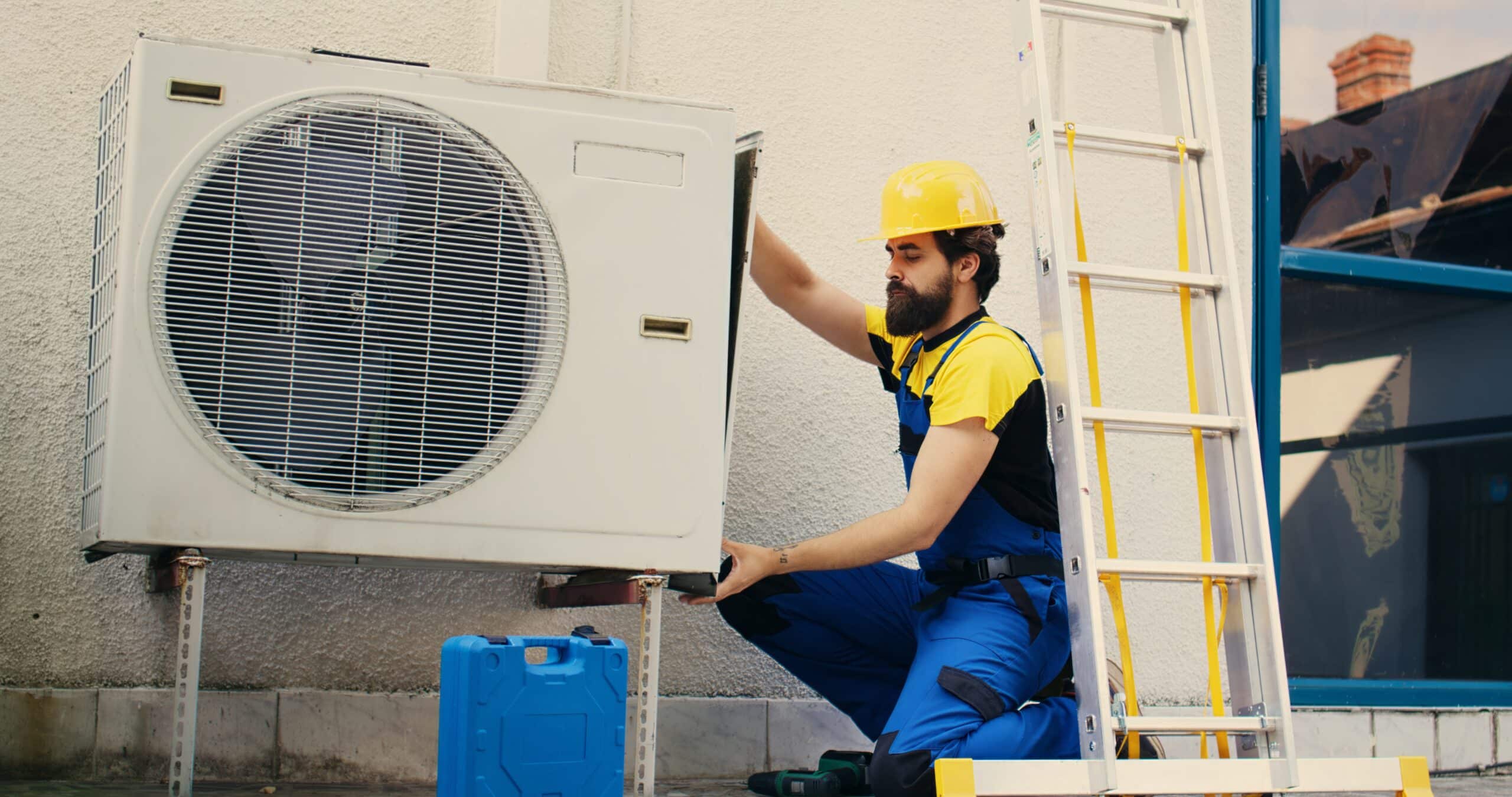Keep Your Home Comfortable Year-Round with DMAKS HVAC Support.
Keep Your Home Comfortable Year-Round with DMAKS HVAC Support.
Blog Article
Energy-Efficient A/c Systems to Conserve on Utility Bills
As energy prices continue to climb, the relevance of energy-efficient A/c systems becomes significantly noticeable. These systems not only promise considerable cost savings on utility costs yet also contribute to an extra lasting future by reducing power consumption.
Benefits of Energy-Efficient Cooling And Heating Systems
Energy-efficient A/c systems supply numerous benefits that expand beyond simple cost savings. By consuming less power, these systems add to lower greenhouse gas emissions, aiding to battle environment adjustment and advertise sustainability.
Additionally, energy-efficient heating and cooling systems frequently supply enhanced comfort levels. A number of these systems include sophisticated technology that enables for much better temperature control and boosted air high quality (DMAKS HVAC). This brings about a much healthier indoor environment, which is particularly important for people with allergies or respiratory system issues
In addition, buying energy-efficient HVAC systems can improve residential or commercial property worth. As more customers focus on energy efficiency, homes and buildings geared up with these systems may attract higher proposals in the property market.
Kinds of Energy-Efficient Heating And Cooling Options
How can house owners and organizations pick one of the most suitable energy-efficient cooling and heating alternatives for their requirements? The market offers a variety of energy-efficient cooling and heating systems, each developed to boost convenience while reducing power consumption.
One option is the variable cooling agent circulation (VRF) system, which effectively controls the temperature in numerous areas within a structure. This system adjusts its refrigerant circulation to match the wanted temperature, leading to substantial power savings.
One more popular selection is geothermal heatpump, which use the earth's steady temperature level to warmth and cool spaces. By transferring heat to and from the ground, these systems show remarkable performance, specifically in modest environments.
Furthermore, ductless mini-split systems offer an energy-efficient choice for homes doing not have ductwork. These systems enable zone-specific cooling and heating, decreasing power waste in unoccupied locations.
Lastly, high-efficiency heaters and air conditioners, with advanced SEER and AFUE rankings, use trusted climate control while taking in much less energy than traditional versions. By evaluating these choices, home owners and organizations can choose a heating and cooling system tailored to their details requirements and power effectiveness objectives.
Key Functions to Think About

Next, examine the kind of compressor made use of in the system. DMAKS HVAC. Variable-speed compressors can adjust their output to match the heating or cooling need, bring about enhanced convenience and power cost savings compared to single-speed models. Furthermore, look for systems geared up with smart thermostats that offer programmable setups and remote accessibility, permitting much better control over energy consumption
An additional vital attribute is the system's air filtration ability. High-efficiency filters can enhance indoor air high quality and minimize power usage by making sure the system operates visit successfully. Furthermore, consider the kind of refrigerant utilized; modern systems typically utilize green refrigerants that have a reduced environmental influence.
Lastly, guarantee that the system works with zoning innovation, which permits for personalized temperature level control in different locations of your home, enhancing comfort while lessening energy usage.
Tips for Choosing the Right System


Following, think about power effectiveness ratings, particularly the view it Seasonal Power Performance Proportion (SEER) for cooling systems and the Yearly Fuel Utilization Effectiveness (AFUE) for home heating systems. Higher ratings show higher effectiveness, which can cause considerable savings on energy bills with time.
Additionally, review the kind of heating and pop over to this web-site cooling system that best matches your way of living and spending plan. Choices consist of air conditioning, ductless mini-splits, and heatpump, each with its very own set of advantages and downsides.
Don't neglect the importance of proper setup and sizing; an inaccurately sized system can lead to inadequacies and increased wear. Last but not least, speak with a specialist heating and cooling contractor to get expert referrals customized to your home's one-of-a-kind needs. This comprehensive strategy will guarantee that you choose an energy-efficient a/c system that meets your needs and spending plan efficiently.
Upkeep for Ideal Effectiveness
When the best heating and cooling system remains in location, continuous upkeep ends up being vital to guaranteeing optimum efficiency and longevity. A well-maintained system runs better, resulting in lower power usage and minimized energy expenses. Regular inspections and tune-ups need to be arranged at the very least two times a year-- when prior to the cooling period and when before the home heating season.

House owners should additionally be attentive regarding checking their HVAC system's efficiency. Unusual sounds, fluctuating temperatures, or enhanced energy expenses can show underlying issues that require instant interest. By addressing these worries immediately, homeowners can protect against expensive repairs and expand the life-span of their systems.
Investing in an upkeep strategy with a qualified professional not only improves performance yet likewise supplies peace of mind, understanding that the system is operating at its best. DMAKS HVAC. Normal maintenance is consequently crucial for maintaining power effectiveness and reducing total operational costs
Final Thought
To conclude, energy-efficient a/c systems provide a practical service for lowering utility expenses while improving convenience and air quality. By incorporating sophisticated modern technologies and choices such as geothermal warmth pumps and ductless mini-splits, property proprietors can attain substantial energy savings and contribute to environmental sustainability. Careful factor to consider of system functions and recurring maintenance better makes certain optimum efficiency, making energy-efficient systems a sensible investment for both economic and ecological advantages.
Report this page